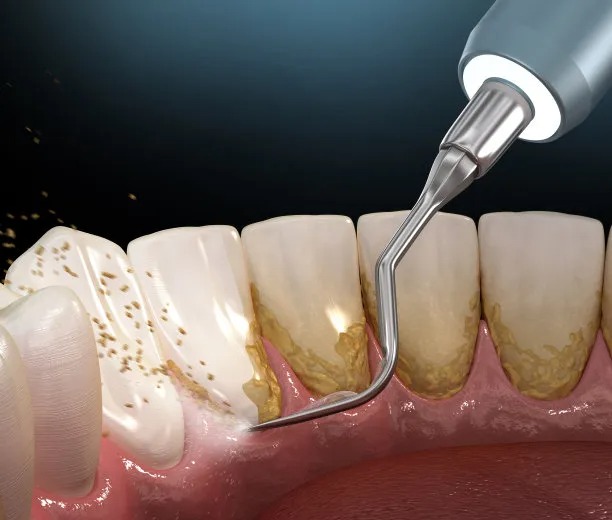Summary: Root canal treatment is a vital procedure aimed at preserving natural teeth and promoting optimal dental health. This article discusses essential measures that dental professionals and patients can take to ensure the success of this treatment. The focus is placed on pre-treatment preparation, effective procedural techniques, post-treatment care, and ongoing maintenance. By adhering to these measures, the risks associated with root canal treatments can be minimized, resulting in better patient outcomes and improved oral health.
1. Importance of Comprehensive Pre-Treatment Evaluation

A thorough pre-treatment evaluation is crucial for the success of root canal procedures. This involves a complete dental examination, including X-rays, to understand the complexity of the case. Identifying the shape and size of the root canals enables the dentist to devise an effective treatment plan tailored to each patients needs.
Moreover, assessing the patients medical history aids in pinpointing any underlying conditions that might complicate the procedure, such as certain allergies or systemic diseases. Such knowledge allows the dental professional to take necessary precautions, ensuring patient safety during the treatment.
Finally, educating the patient about the procedure fosters better cooperation and reduces anxiety. Effectively communicating what to expect helps alleviate fear, encouraging patients to seek necessary care promptly.
2. Utilizing Advanced Procedural Techniques
The adoption of cutting-edge techniques and equipment plays a significant role in the success of root canal treatments. Modern technologies, including digital imaging and rotary endodontics, enhance the accuracy and efficiency of the procedure. This results in cleaner and more precise canal cleaning and shaping.
Moreover, thorough disinfection of every canal is essential for preventing future infections. Dentists should utilize effective irrigants, such as sodium hypochlorite, to eliminate bacteria and debris. Such meticulous cleaning safeguards against potential complications, preserving the integrity of the tooth and surrounding structures.
In addition, using high-quality filling materials during the sealing process ensures that the canals remain airtight. This is crucial for preventing reinfection and promoting healing, contributing to the long-term success of the treatment.
3. Implementing Effective Post-Treatment Care
Post-treatment care significantly impacts the healing process and overall dental health. Following the root canal procedure, dentists must provide patients with specific aftercare instructions to facilitate recovery. This includes advice on pain management, dietary restrictions, and signs of potential complications to watch for.
Regular check-ups are also vital to monitor the healing process. These follow-up visits allow dentists to assess any concerns and undertake necessary adjustments promptly. Consistent monitoring ensures that complications are caught early, which can make a significant difference in treatment outcomes.
Furthermore, maintaining excellent oral hygiene is imperative. Patients should be encouraged to brush and floss regularly, as well as to use an antibacterial mouthwash. Such practices help prevent further infections and promote optimal healing after treatment.
4. Emphasizing Ongoing Maintenance of Dental Health
Ongoing maintenance of dental health is paramount for patients who have undergone root canal treatments. Regular dental visits for cleanings can help ensure that any issues are detected and addressed swiftly. Preventive care is essential for maintaining the health of both the treated tooth and neighboring teeth.
Additionally, patients should be educated about the importance of a balanced diet rich in vitamins and minerals. Proper nutrition aids in overall oral health and strengthens the immune system, further protecting the treated area from infections.
Finally, adopting good lifestyle habits, such as avoiding tobacco and limiting sugar intake, contributes greatly to long-term dental health. Such lifestyle changes can significantly reduce the likelihood of needing any further invasive dental treatments in the future.
Summary:
In conclusion, ensuring successful root canal treatment requires careful pre-treatment evaluation, the implementation of advanced procedural techniques, effective post-treatment care, and ongoing maintenance. By focusing on these aspects, dental professionals can minimize risks and significantly enhance patient outcomes. These measures create a pathway not only for preserving natural teeth but also for promoting lifelong dental health.
This article is compiled by Vickong Dental and the content is for reference only
Vickong Dental
Vickong Dental is a large medical group established in Hong Kong in 2008 by professors from well-known medical universities in Guangdong and Hong Kong, as well as medical doctors from key national '985' universities (including Master's supervisors and senior professors). The chain of branches brings together expert dentists with PhDs and Master's degrees from Hong Kong and Mainland China, committed to providing high-quality dental treatment.
"Vickong Dental Practices the University Motto of 'Healing and Serving Society,' with a Stable Operation for Sixteen Years. It Has Been honored with Hong Kong Enterprise Leaders's Choice,' and is a Global Trusted Implant Center for the Nobel Implant System. Recommended by Hong Kong Metro Broadcast and Guangdong Television, it Serves Customers from Over Thirty Countries and Regions, Gaining the Trust and Favor of Citizens from the Guangdong-Hong Kong-Macau Greater Bay Area and Surrounding Cities.

Thousands of customers' unanimous praise
The most recognized and highly recommended dental service by customers in the Guangdong-Hong Kong-Macau Greater Bay Area
We Ensure You Receive Detailed Care and Attention Here
Hong Kong standards, Shenzhen prices, Your Trusted English-speaking dentists

Vickong Dental Medical-Grade Instrument Disinfection Process
Vickong Dental Medical-Grade Instrument Disinfection Process

Vickong Dental Chain: A Warm and Comfortable Environment for Treatment






Appointment Hours

Q&A
Why choose Vickong Dental?
Vickong Dental practices the university motto 「Medicine to Benefit Society」, with each branch bringing together highly qualified dentists with doctoral and master’s degrees from Hong Kong and the Mainland, and has maintained seventeen years of steady operation。Recipient of 「2024 Hong Kong Enterprise Leaders Brand」, 「2025 Hong Kong Enterprise Leaders Brand」, a Nobel Biocare Global Trusted Implant Center, and a brand recommended by Metro Radio Hong Kong and Guangdong TV。
To date, we have served customers from more than thirty countries and regions,earning exceptionally high word-of-mouth recognition and trusted recommendations from residents across the Guangdong-Hong Kong-Macao Greater Bay Area and surrounding cities
We have eight major branches in Zhuhai、Shenzhen,and a consultation and service assurance center in Hong Kong,so you can book a free consultation at any time for any questions,which is very reassuring.
If I do not accept the quotation after the CT scan, will I be charged??
No! As long as the actual treatment has not started, you will not be charged any fees.
Will there be any additional charges during the treatment process?
No, there won’t be any additional charges. Before treatment begins, we will clearly explain the treatment plan and its corresponding fees. Only after the patient agrees and signs the consent form will we proceed with the dental service.
Can I pay in Hong Kong dollars?
Yes. Vickong Dental accepts payment in Hong Kong dollars. The amount will be converted based on the exchange rate of the day, and the applicable rate will be clearly communicated to you in advance.
Can I reschedule my appointment at any time?
Yes. Please contact us via **WeChat** or **WhatsApp** as early as possible, providing your original appointment time and details, along with your preferred new date and time slot for rescheduling.













